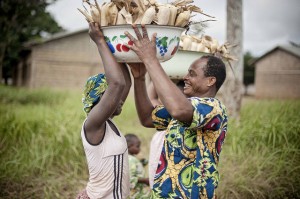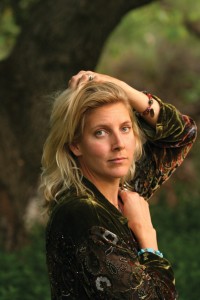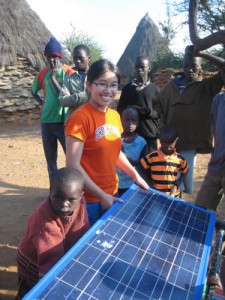
The government shutdown is finally over — at least until the next time the budget clock runs out. It seems that a lot of stubbornness made that mess. According to reports from Capital Hill, it seems that the women in the Senate were the ones that cleaned it up. They were willing to go across party lines to reach a solution. An article in Huffpost Women illuminates the situation.
When it comes to caring for the environment, is there a gender difference between men and women?
A growing body of social science research suggests yes. Women consistently rank values strongly linked to environmental concern — things such as altruism, personal responsibility and empathy — as more important than men do. They also say they see environmentalism as important to protecting themselves and their families.
The Institute for Women’s Policy Research found women are less likely than men to support environmental spending cuts and are less sympathetic to business when it comes to environmental regulation. They also have more positive feelings about environmental activists and are concerned about environmental risks to health, especially locally.
Women in industrialized countries are more likely to buy ecologically friendly and organic foods, more likely to recycle and more interested in efficient energy use, according to research by the Organization for Economic Cooperation and Development. And a survey of research by investigators at Stanford, Ohio State University and the Associated Press found women perceived greater vulnerability to risks and were more willing to pay higher income taxes and gasoline prices to protect the environment.
So where does that leave the dudes?
Continue reading... →by Carolyn Parrs
When sleeping women wake, mountains move.
~ Chinese proverb
No sunlight. No fresh air. Enclosed in darkness to plump up in an insanely artificial way. That’s the reality for most chickens being farmed today. And if the farmers under contract with the Big Boys do not agree to raise their livestock that way, “They hold their contract over their heads,” says third generation chicken farmer, Carole Morison. She was mad as hell and just couldn’t take it anymore.
Continue reading... →Keith Brunner from Gears of Change Youth Media Project reports back from the side event “Women’s critical perspectives on the green economy” carried out during the UN Rio+20 intercessional (March 25-27) at the UN headquarters in New York.
The “green economy” will be a shot in the arm for ailing global markets- a rush of new commodities and investment frontiers, packaged neatly within a UN mandate for “sustainable development.” But how will it affect those who are already the most marginalized?
This afternoon I attended an event entitled “Women’s critical perspectives on the ‘green economy.” Participants painted a picture of a future far different from the heady visions on display at the corporate side events. The “green economy,” according to the panelists, will exacerbate already growing gender violence, urban migration and loss of traditional skills and knowledge amongst women, with women in the Global South being hit the hardest.
Isis Alvarez, with Global Forest Coalition, began the panel by noting that: “Biodiversity and the environment turned into marketable goods seems to be the current approach to conservation. And markets necessarily need privatization. But what are the consequences for women, if a resource which used to be accessible is now privatized?”
She continued: “Women usually provide their families with key resources for their livelihoods, such as fuel wood, medicinal plants, fodder, food, nuts, they collect seeds, so biodiversity means everything to them, as they depend on the non-monetary benefits of biodiversity.”
Continue reading... →Sharon Salzberg, the queen of loving-kindness meditation, tells a story of a time she was traveling in India. As she was exiting a taxi, a man grabbed her suitcase in attempt to steal it. Sharon, grabbing the handle, struggled back and forth and back and forth with this man. Finally, when she knew he wasn’t letting go, she took her umbrella and hit him over the head “with all the love in my heart,” she says. Hit him over the head with all the love in her heart. You’ve got to smile at that.
So often we think of the word “kindness” and get all mushy and passive. We confuse it with being “nice”. Being meek. Being monkish. I would like to shine a light on a side of kindness that doesn’t get much airtime. Fierce kindness. Sounds like an oxymoron, but it’s not.
Continue reading... →More than 10,000,000 women live in rural parts of Turkey, and although Turkey has one of the world’s lowest employment rates for women (22%), women are working full-time (albeit unpaid) while they care for their large families and run small family farms. But in these remote villages, they are cut off from the city centers, so there are limited opportunities to translate this labor into income, educational opportunities, or professional development.
Organic beekeeping, particularly in rural untouched areas such as Northeastern Turkey is an ideal livelihood for women, because women are stable –therefore not moving their bees into areas with harmful crops or pesticides– and beekeeping can be done right from their backyards without taking away too much time from raising a family.
Continue reading... →
Lisa Witter, Chief Strategy Officer of Fenton and co-author of The She Spot: Why Women are the Market for Changing the World – And How to Reach Them.
The last few weeks we have experienced joy and sorrow for new and old Nobel Peace Prize winners — the death of the first African woman winner, Wangari Maathai, as well as the 2011 Nobel Peace Prize awarded to Liberian President Ellen Johnson Sirleaf, Liberian peace activist Leymah Gbowee, and Yemeni democratic activist Tawakkul Karman for their work on women’s rights.
This group shares a number of obvious attributes: strength, leadership, risk taking and vision. Another that may not be so obvious is how fun they all are or were, and how fun may have impacted the resilience of those movements.
I have had the privilege of spending personal time with two of them — Ms. Maathi when she was in Oslo to receive her prize and with Ms. Gbowee through the last few years as she toured the U.S. telling her story of Liberian peace in the award-winning film Pray the Devil Back to Hell. I can say that they both have fierce eyes of kindness and were often funny, with larger-than-life smiles.
Fun is often thought of as superfluous, extra, something to get to when you have time and a tool not to be used in serious situations. In fact, we have sayings to reinforce this notion: “this is no laughing matter” or “serious times call for serious solutions.” But fun can be, and has been, a powerful tool for transformation when tapped appropriately, as our past and recent Nobel-Prize-winning women demonstrate.
Environmental activist Maathi and her Green Belt Movement mobilized community consciousness using tree planting as an entry point for self-determination, equity, improved livelihoods and security, and environmental conservation. As she planted trees, she worked hard but never forgot to smile or create a chorus of song with her colleagues.
While being the first African woman to win the Prize, she was not the only Nobel winner to tap the fun factor in her organizing; Leymah Gbowee did, as well. It is not often you experience what feels like a real-time, front-row seat to a Nobel Peace Prize act like you do in Pray the Devil Back to Hell. The film, released this week on PBS, chronicles Liberian women’s struggle for peace, shows the fierce organizing ability of Nobel winner Leymah Gbowee, and highlights the political skills of the first woman African President, Ellen Johnson Sirleaf.
Continue reading... →Eden Full, a 19-year-old Princeton University mechanical engineering student has developed a non-toxic, cheap, recyclable device made out of metal and bamboo that allows solar panels to follow or track the Sun without the use of an electric motor. This does two things: 1) it boosts the output of the solar panels by about 40% (huge) and 2) it does so using a much cheaper and simpler method than traditional trackers commonly used in commercial projects (her technology costs $10, a lot less than the typical $600 solar tracker).
Eden and the SunSaluter (being developed by her company, Roseicollis Technologies, now) have won a number of big awards for this ‘simple’ device. She just won $275,000, in the 2011 Postcode Lottery Green Challenge and $10,000 in the the EcoLiving 2011 Awards a few months ago. And she’s also won a $100,000 fellowship from the Thiel Foundation this year. Way to go Eden!
Continue reading... →




